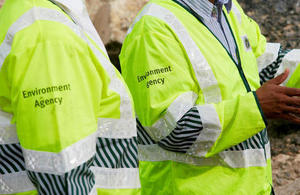Mr Speaker, with permission, I would like to update the House on the latest situation regarding Russia’s actions towards Ukraine.
As at 0900 hours today there are now more than 110 Battalion Tactical Groups massed around Ukraine’s borders with Russia and Belarus.
In addition, in the Black Sea Fleet there are two amphibious groups, nine cruise missile-equipped Russian ships and a further four cruise-missile capable vessels in the Caspian Sea.
In the last 48 hours, contrary to Kremlin assurances, we have seen a continued increase in troop numbers and a change in force disposition, moving from holding areas to potential launch locations.
All the indicators point to increasing numbers and readiness of Russian forces. And – not surprising to many of us – the pledge to withdraw Russian troops from Belarus at the end of their joint military drills on 20 February was not carried out and the exercise has now been extended until further notice.
Complementing this troop build-up has been the proliferation of false flags operations, propaganda stunts, and Russian news outlets carrying fictitious allegations.
These are not the actions of a Russian government fulfilling its repeated declarations that it has no intention of invading Ukraine.
In fact, we have seen over the last few weeks the Russian ‘playbook’ being implemented in a way that gives us strong cause for concern that President Putin is still committed to an invasion.
I believe he is in danger of setting himself on a tragic course of events, leading to humanitarian crisis, instability, and widespread suffering – not just of Ukrainians but also of the Russian people.
Russians, like many of us, know the consequences of military interventions. The Soviet Union in Afghanistan, the first war in Chechnya; these are just two of the examples that Russia faced where too many young men returned home in zinc-lined coffins.
The Government therefore urges President Putin – for the sake of his own people and even at this eleventh hour – to rule out the invasion of Ukraine and recommit to a diplomatic process for us to address the perceptions of the Kremlin.
Over recent weeks my RHF, the Foreign Secretary and I have engaged in numerous engagements with our international counterparts, including my own visit to Moscow to meet with Defence Minister Shoigu and General Valery Gerasimov.
We have made clear our determination to uphold the defensive principles of NATO and to defend the right of sovereign countries to make choices about their own security arrangements.
As the Russian Government itself has signed up to, states and I quote, have “an equal right to security. We reaffirm the inherent right of each and every participating state to be free to choose or change its security arrangements, including treaties or alliances”.
That statement, Mr Speaker was signed by the Russians in 1975 in the Helsinki Final Act, in 1995 in the Budapest Summit Declaration, in the 1999 Istanbul Summit, and most lately in 2010 at the Astana Summit.
We urge Russia to stick to its commitments that it has openly made and signed up to over the years.
My counterpart, Minister Shoigu, repeated to me in-person that Russia has no intention of invading Ukraine and while we take them at their word, we must judge them by their actions.
At our meeting I also took the opportunity to address the proposals in Russia’s draft treaty because while this is not a return to normal UK relations, it is important that as one of Europe’s biggest military powers, the UK maintains strong lines of communications with Russia, in order to avoid miscalculation or the risk of inadvertent escalations.
I also continue to speak regularly to my Ukrainian counterpart, Minister Reznikov, as we continue to support the Armed Forces of Ukraine.
Since 2015 the UK has responded – alongside the likes of Sweden and Canada – to Russia’s previous illegal occupation of Crimea with defence capacity building, including training and reform.
And, as I announced to the House last month, Mr Speaker, we took the decision to also provide lethal aid to Ukraine.
This now means that alongside the United States, Canada, Estonia, Latvia and Lithuania and the Netherlands, the United Kingdom has not just spoken but acted.
I am pleased with the efforts being made by a range of European leaders – including President Macron – to find a way through, as we must remain resolute in our commitment to NATO’s formal response to the Russian draft treaties, which all NATO members signed up to.
Intimidation and aggression, however, must not be rewarded.
We should be under no illusion. The Russian forces have now massed on Ukraine’s borders 65% of all their land combat power. The formations present and the action of the Russian state to date not only threatens the integrity of a sovereign state, but undermine international law and the democratic values in which all of us in Europe so strongly believe.
The Foreign Office has now relocated the embassy further west in the country, and as two weeks ago advised all UK nationals should leave Ukraine via all means possible.
The Ministry of Defence will continue to monitor Russian actions, support Ukrainian defensive efforts, and contribute to NATO’s response measures.
We continue to hope, Mr Speaker, President Putin will relent and pull back from invasion, but we must prepare ourselves for the consequences if he does not.
I will update the House as I have done so in the last few weeks, both in the Chamber and to colleagues online.

